You are here
New Releases
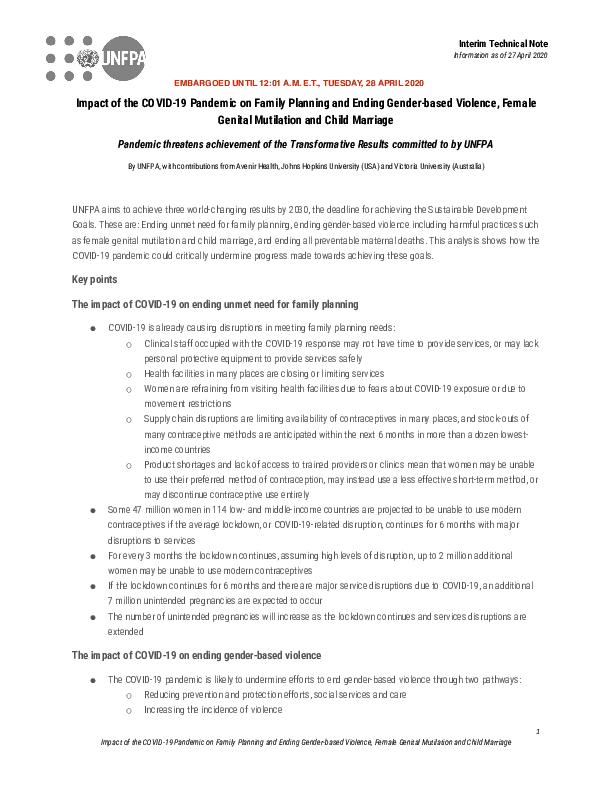
Impact of the COVID-19 Pandemic on Family Planning and Ending Gender-based Violence, Female Genital Mutilation and Child Marriage
UNFPA aims to achieve three world-changing results by 2030, the deadline for achieving the Sustainable Development Goals. These are: Ending unmet need for family planning, ending gender-based violence including harmful practices such as female genital mutilation and child marriage, and ending all preventable maternal deaths. COVID-19 pandemic could critically undermine progress made towards achieving these goals.
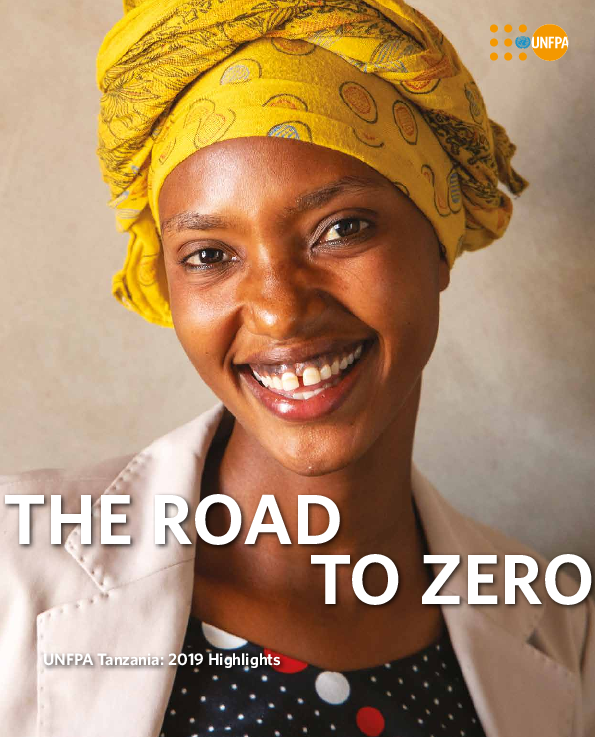
The Road to Zero
The world has changed since this report was written, but as we come together to stop the spread of COVID-19, UNFPA Tanzania remains as committed as ever to delivering on our three zeros – zero unmet need for family planning; zero maternal death; and zero gender-based violence and harmful practices – and will continue to prioritize and respond to the needs of the most vulnerable women and girls and young people.
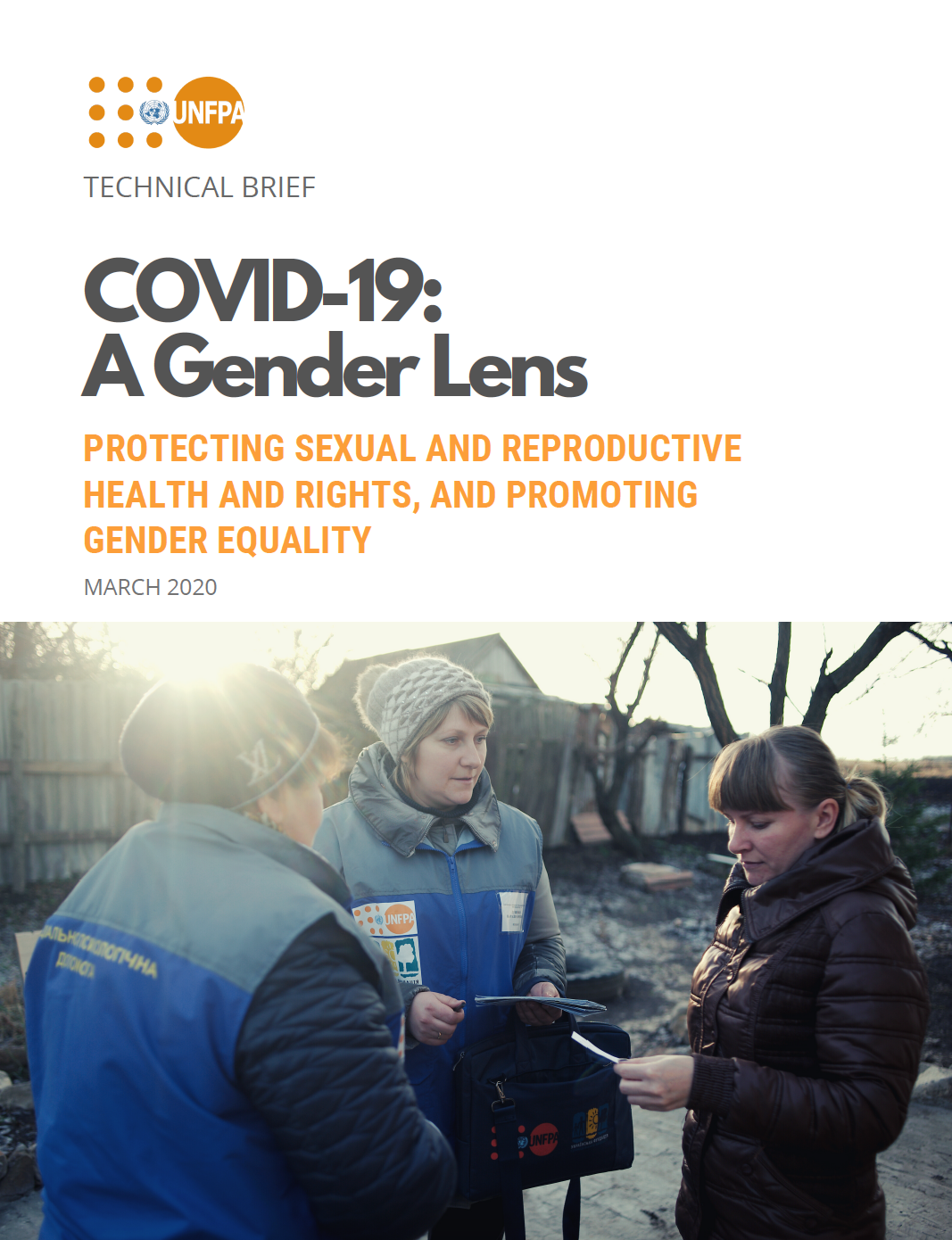
COVID-19: A Gender Lens
Disease outbreaks affect women and men differently, and pandemics make existing inequalities for women and girls and discrimination of other marginalized groups such as persons with disabilities and those in extreme poverty, worse. This needs to be considered, given the different impacts surrounding detection and access to treatment for women and men.
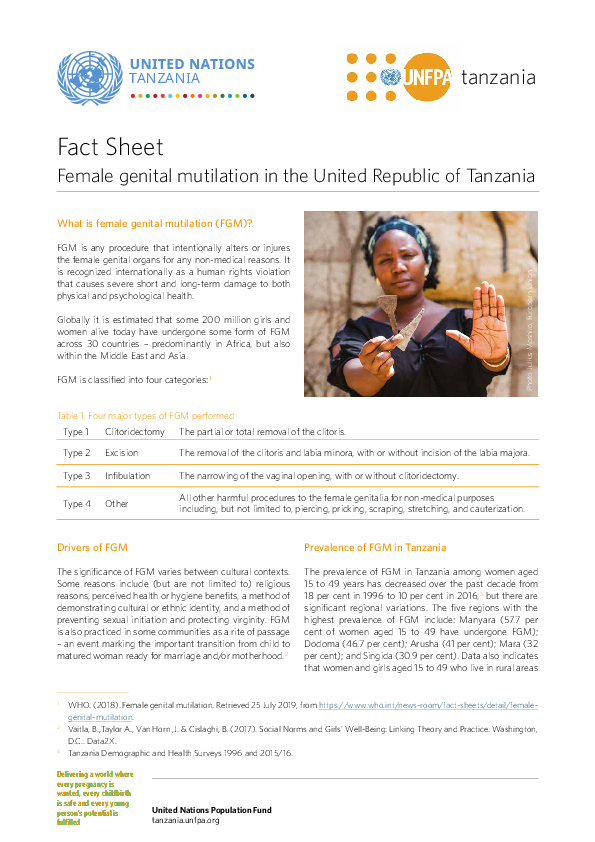
Fact Sheet: FGM in the United Republic of Tanzania
UNFPA Tanzania is committed to accelerating the abandonment of female genital mutilation (FGM) in Tanzania and delivering on the global goal of zero FGM by 2030.
Our approach is diverse: we work at the policy level supporting government through the National Plan of Action to End Violence Against Women and Children and with communities through our partners.
Our focus is on regions where FGM prevalence is high. We also support regional initiatives to strengthen and coordinate the response to cross-border FGM.
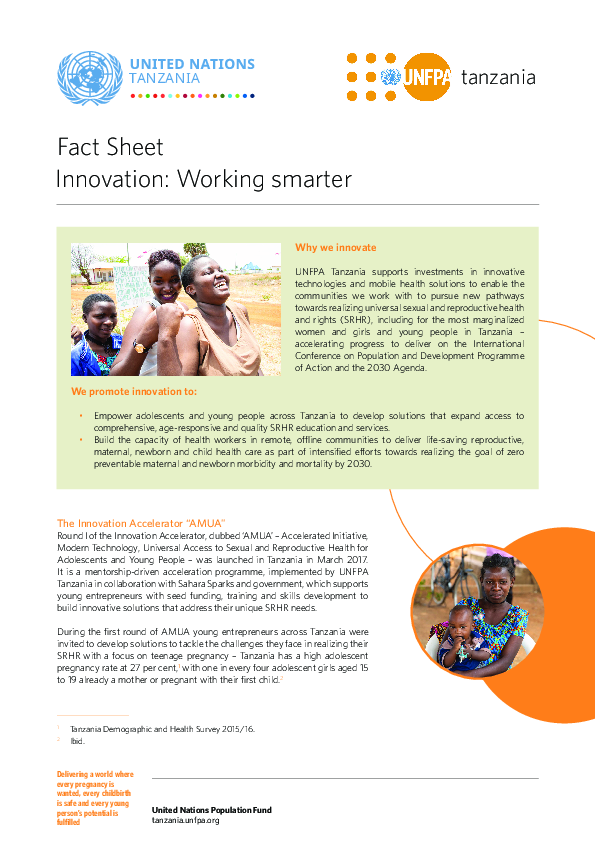
Fact Sheet Innovation: Working smarter
UNFPA Tanzania invests in innovation to accelerate progress towards global development aspirations including the Sustainable Development Goals and UNFPA’s three transformative results: to end preventable maternal deaths, end unmet need for family planning, and end violence gender-based violence and all harmful practices.
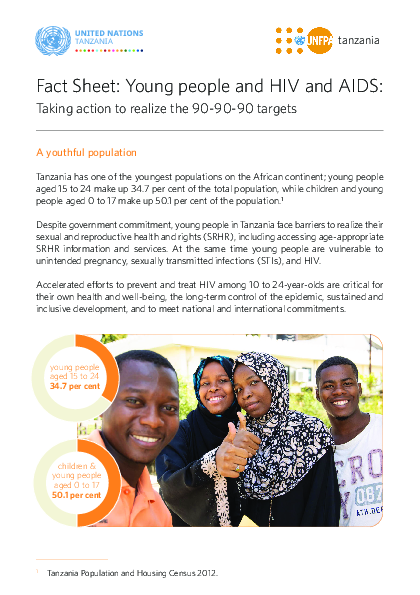
Fact Sheet: Young people and HIV and AIDS: Taking action to realize the 90-90-90 targets
UNFPA Tanzania is committed to increasing access to HIV prevention and response services for Tanzania’s youthful population as part of its mandate of ensuring universal access to sexual and reproductive health and rights.
Activities focus on building infrastructure and increasing capacity to deliver age-appropriate, equitable and integrated sexual and reproductive health services, including voluntary HIV counselling and testing services, across mainland Tanzania and Zanzibar for some of the most marginalized and vulnerable young people.
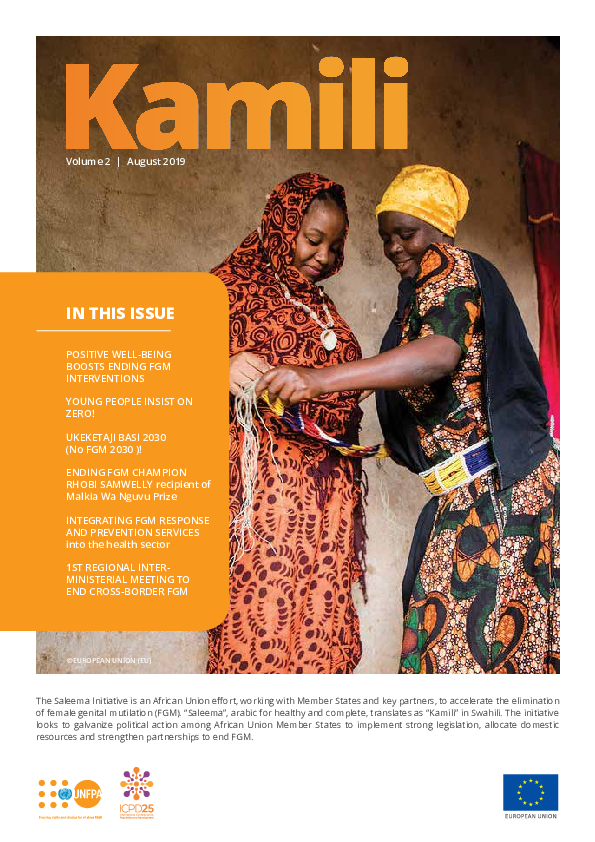
Kamili 2
Welcome to the second edition of Kamili!
It’s been a busy first half of the year! On International Day of Zero Tolerance to FGM the young people of Mara Region came together to call on government to accelerate efforts to end the harmful practice. In April, a joint action plan and declaration to curb cross-border FGM was agreed at a regional meeting – the first of its kind – with Tanzania, Kenya, Uganda, Ethiopia and Somalia.
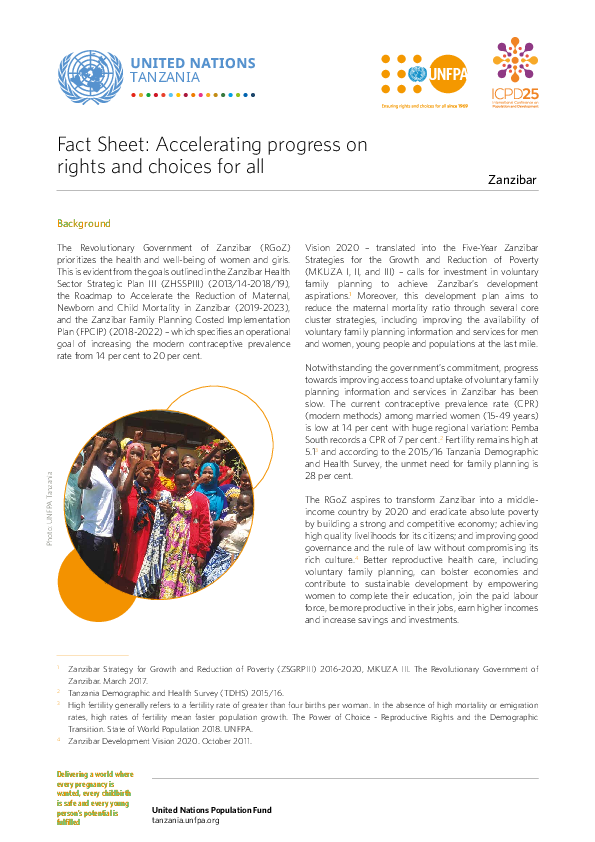
Fact Sheet: Accelerating progress to make rights and choices a reality for all - Zanzibar
An overview of our activities, initiatives and innovations to increase access to quality voluntary, human-rights based family planning services and information in Zanzibar.
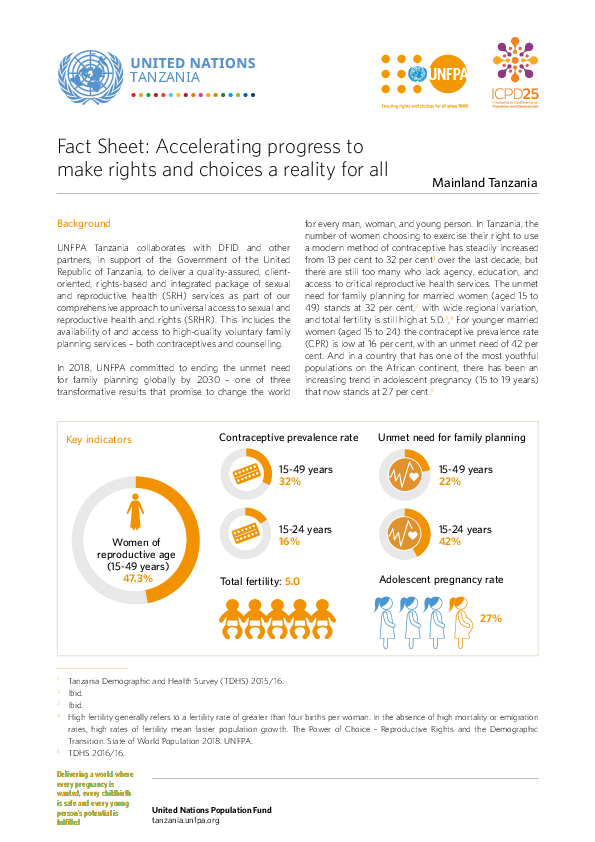
Fact Sheet: Accelerating progress to make rights and choices a reality for all - Tanzania Mainland
An overview of our activities, initiatives and innovations to increase access to quality voluntary, human-rights based family planning services and information in Tanzania.
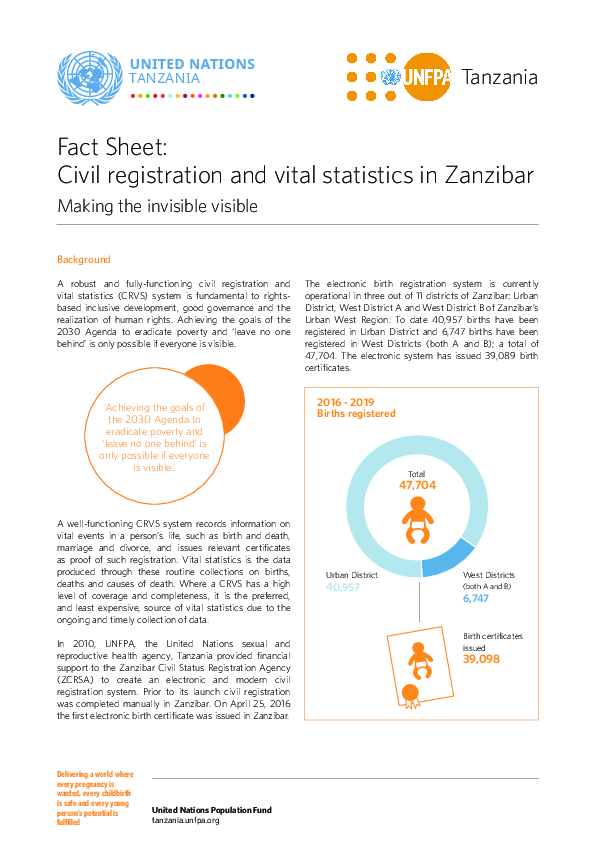
Fact Sheet: Civil registration and vital statistics in Zanzibar
A robust and fully-functioning civil registration and vital statistics (CRVS) system is fundamental to rights-based inclusive development, good governance and the realization of human rights. Since 2010 UNFPA has been supporting the Zanzibar Civil Status Registration Agency (ZCRSA) to develop a modern and electronic civil registration system.